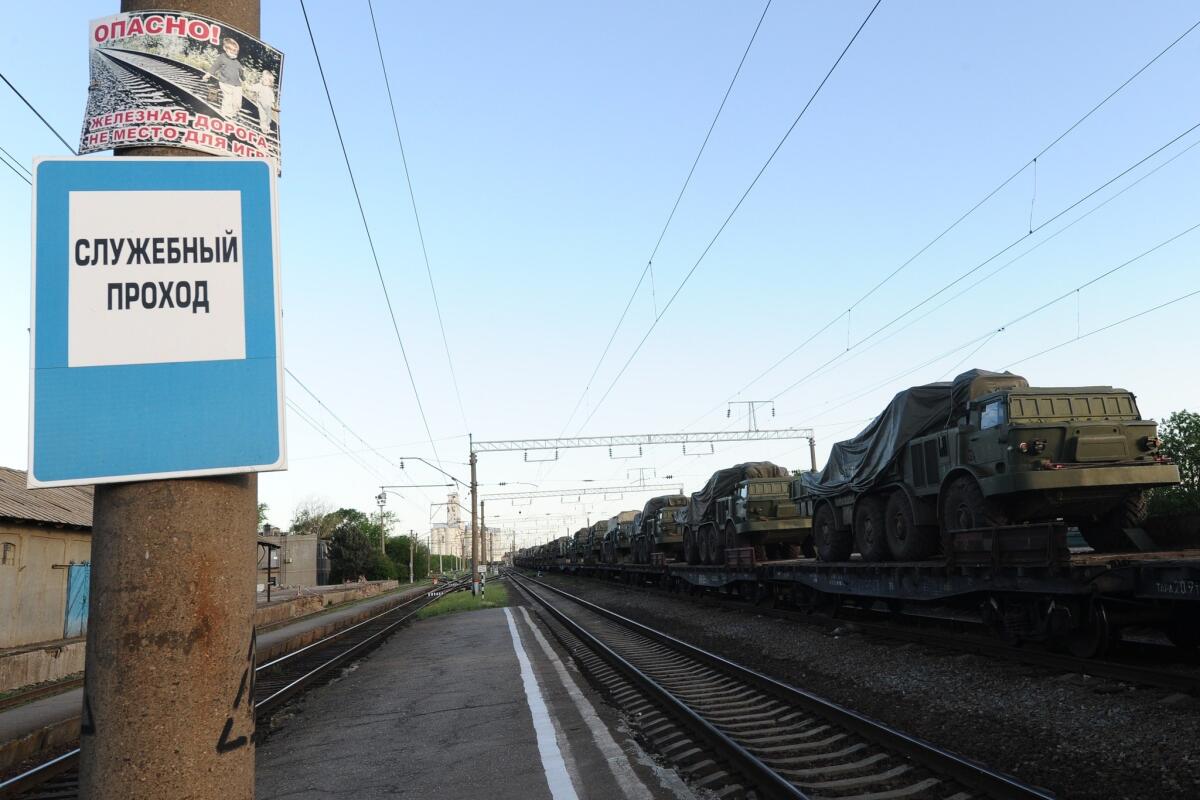Putin declares Russian military deaths in peacetime state secrets

Russian armored vehicles are readied May 23 for transport on a freight train from the town of Matveev Kurgan, 13 miles from the Ukrainian border.
Russian President Vladimir Putin signed a decree on Thursday outlawing disclosure of military deaths in peacetime, a move apparently aimed at hiding evidence of Russian military involvement in the war in eastern Ukraine.
The decree published on the government information portal amends a 1995 list of state secrets to add military deaths “in peacetime during special operations” to the already classified “information disclosing losses in manpower in wartime,” the Tass news agency reported.
Putin has denied funneling Russian troops or arms to pro-Russia separatists waging war against Ukrainian government forces for control of the country’s eastern industrial region along the Don River basin, known as the Donbas. But captured active-duty Russian troops, including two special forces officers taken prisoner this month, have conceded to Ukrainian authorities that they were dispatched by the Russian military to back the separatists.
Media attempts to report on funerals of Russian soldiers whose bodies were returned from the Donbas battlefields have also been disrupted, with reporters and activists beaten when discovered at the gravesides.
Amnesty International denounced the new decree as an infringement on press freedom and an apparent attempt to hide illegal involvement in a sovereign neighbor’s affairs.
“Not only is this decree a blatant attack on freedom of expression, it also has sinister undertones that will intensify speculation President Putin has something to hide – specifically losses incurred by Russia’s military in Ukraine,” John Dalhuisen, Amnesty’s Europe and Central Asia director, said in a statement posted on the rights group’s website.
Dalhuisen said the move also increases fear for the safety of Russian journalists and activists “who have already faced harassment for trying to independently cover the conflict in Ukraine.”
His statement cited an Aug. 29 incident in the northwest Pskov region when local lawmaker Lev Shlosberg was hospitalized with head injuries after being beaten, reportedly for disclosing the first secret funerals of Russian war dead from Ukraine on his Pskovskaya Guberniya online news site.
U.N. rights agencies estimate that at least 6,300 people -- many of them civilians -- have been killed in eastern Ukraine since the separatists seized the governing headquarters of the Donetsk and Luhansk regions in April 2014. The Ukrainian government says the death toll is more than 8,600.
Follow @cjwilliamslat for the latest international news 24/7
More to Read
Start your day right
Sign up for Essential California for news, features and recommendations from the L.A. Times and beyond in your inbox six days a week.
You may occasionally receive promotional content from the Los Angeles Times.







